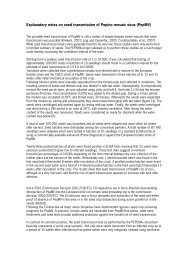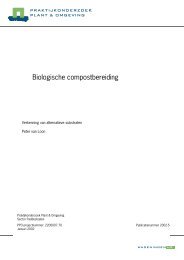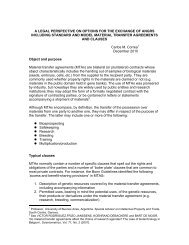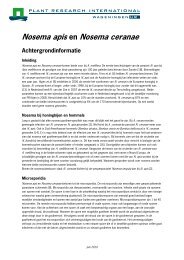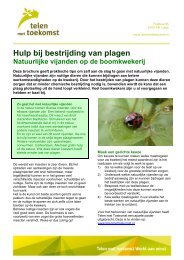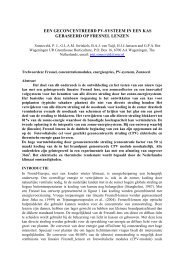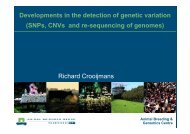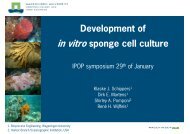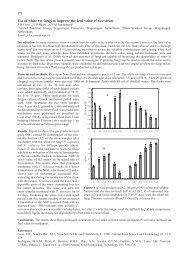Oil spill dispersant article
Oil spill dispersant article
Oil spill dispersant article
You also want an ePaper? Increase the reach of your titles
YUMPU automatically turns print PDFs into web optimized ePapers that Google loves.
the time that oil remains on the sea, sea birds<br />
will continue to be oiled and the oil that is not<br />
recovered will impact the shoreline.<br />
CASE STUDY 3<br />
The Sea Empress oil <strong>spill</strong> - the<br />
use of oil <strong>spill</strong> <strong>dispersant</strong>s<br />
Shortly after eight o’clock on the evening<br />
of 15th February 1996, the oil tanker Sea<br />
Empress, laden with 131,000 tonnes of<br />
Forties blend crude oil, ran aground in the<br />
entrance to Milford Haven in Pembrokeshire, one of<br />
Britain’s largest and busiest natural harbours. In the<br />
days that followed, while the vessel was brought under<br />
control in a salvage operation beset with problems,<br />
some 72,000 tonnes of Forties light crude oil and 480<br />
tonnes of heavy fuel oil <strong>spill</strong>ed into the sea, polluting<br />
around 200km of coastline recognised internationally<br />
for its wildlife and beauty. From the 16th until the 21st<br />
of February a fl eet of six DC-3 <strong>dispersant</strong>-spraying<br />
aircraft sprayed oil at sea with a total of 446 tonnes<br />
of <strong>dispersant</strong>. No <strong>dispersant</strong> spraying took place after<br />
21st February because any remaining surface oil was in<br />
patches too small to treat effectively, or was emulsifi ed<br />
and weathered to an extent where it was no longer<br />
amenable to the use of <strong>dispersant</strong>s.<br />
Effects<br />
The Sea Empress oil <strong>spill</strong> caused the deaths of many<br />
thousands of sea birds, but the populations of these<br />
species were not seriously affected and there was no<br />
evidence of any affects on seabird breeding success.<br />
The population of the most affected sea bird, the<br />
common scoter, was recovering within two years. Large<br />
numbers of marine organisms were killed either as<br />
freshly <strong>spill</strong>ed oil came ashore (for example, limpets<br />
and barnacles) or when raised levels of hydrocarbons<br />
in the water column affected bivalve molluscs and<br />
other sediment-dwelling species. Populations of amphipods<br />
(small crustaceans) disappeared from some areas<br />
Recent NEBA and response analyses of various<br />
<strong>spill</strong> scenarios indicate that there could be<br />
a strong motivation to use <strong>dispersant</strong>s instead<br />
of mechanical recovery. By spraying <strong>dispersant</strong>s<br />
from aircraft or helicopter it is possible<br />
to treat <strong>spill</strong>ed oil quite quickly. The oil will<br />
be dispersed, the oiling of sea birds will rapidly<br />
cease and the oil will not drift ashore.<br />
There would be the possibility of achieving<br />
a much higher degree of success - as measured<br />
by the reduction in sea bird deaths<br />
and the reduced amount of oil on the shore<br />
- by using <strong>dispersant</strong>s than by using mechanical<br />
recovery. However, there is the risk that<br />
the dispersed oil may cause some additional<br />
effects to marine life that inhabits the water<br />
column or sediment if the water is shallow.<br />
The NEBA process should be used to assess<br />
the probable outcome of different response<br />
actions, relative to no response, so that the<br />
best overall outcome is achieved. This can<br />
then be justifi ed as the best response method.<br />
and were severely depleted from others.<br />
Recovery of these populations was slow.<br />
There appeared to have been no impacts<br />
on mammals. Although tissue concentrations<br />
of oil components increased temporarily<br />
in some fi sh species, most fi sh were<br />
only affected to a small degree, if at all,<br />
and very few died. The fi shing bans that<br />
were imposed caused hardship for the 700<br />
fi shermen in the £20 million a year local fi shing industry<br />
until compensation claims and payments were sorted<br />
out. Within two years the fi shing stocks appeared to be<br />
back to normal.<br />
It appears that although a very large amount of oil was<br />
<strong>spill</strong>ed in a particularly sensitive area, the impact was far<br />
less severe than many people had expected. This was<br />
due to a combination of factors - in particular, the time<br />
of year, the type of oil, weather conditions at the time of<br />
the <strong>spill</strong>, the clean up response and the natural resilience<br />
of many marine species.<br />
Although the rapid, large scale use of <strong>dispersant</strong>s at sea<br />
probably increased exposure to oil of animals on the<br />
sea bed - and to have contributed to the strandings<br />
of bivalve molluscs and other species and the decrease<br />
of amphipod populations in some areas - on balance it<br />
is likely that it was of benefi t by reducing the overall<br />
impact of the <strong>spill</strong>. It was estimated that approximately<br />
one-half to two-thirds of 37,000 tonnes of the <strong>spill</strong>ed oil<br />
that was estimated to have been dispersed was caused<br />
to do so by the use of <strong>dispersant</strong>s. The 20,000 to 25,000<br />
tonnes of oil that was dispersed in this manner had the<br />
capability of being converted into up to 100,000 tonnes<br />
of emulsifi ed oil. Some of this would certainly have<br />
impacted the coastline, caused ecological damage and<br />
would have had to have been removed in a very costly<br />
clean up procedure. The use of <strong>dispersant</strong>s certainly<br />
reduced the cost of the response and - on balance -<br />
reduced the overall environmental impact.<br />
25



